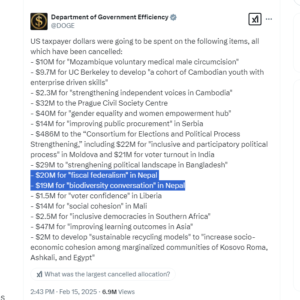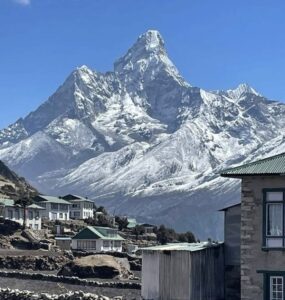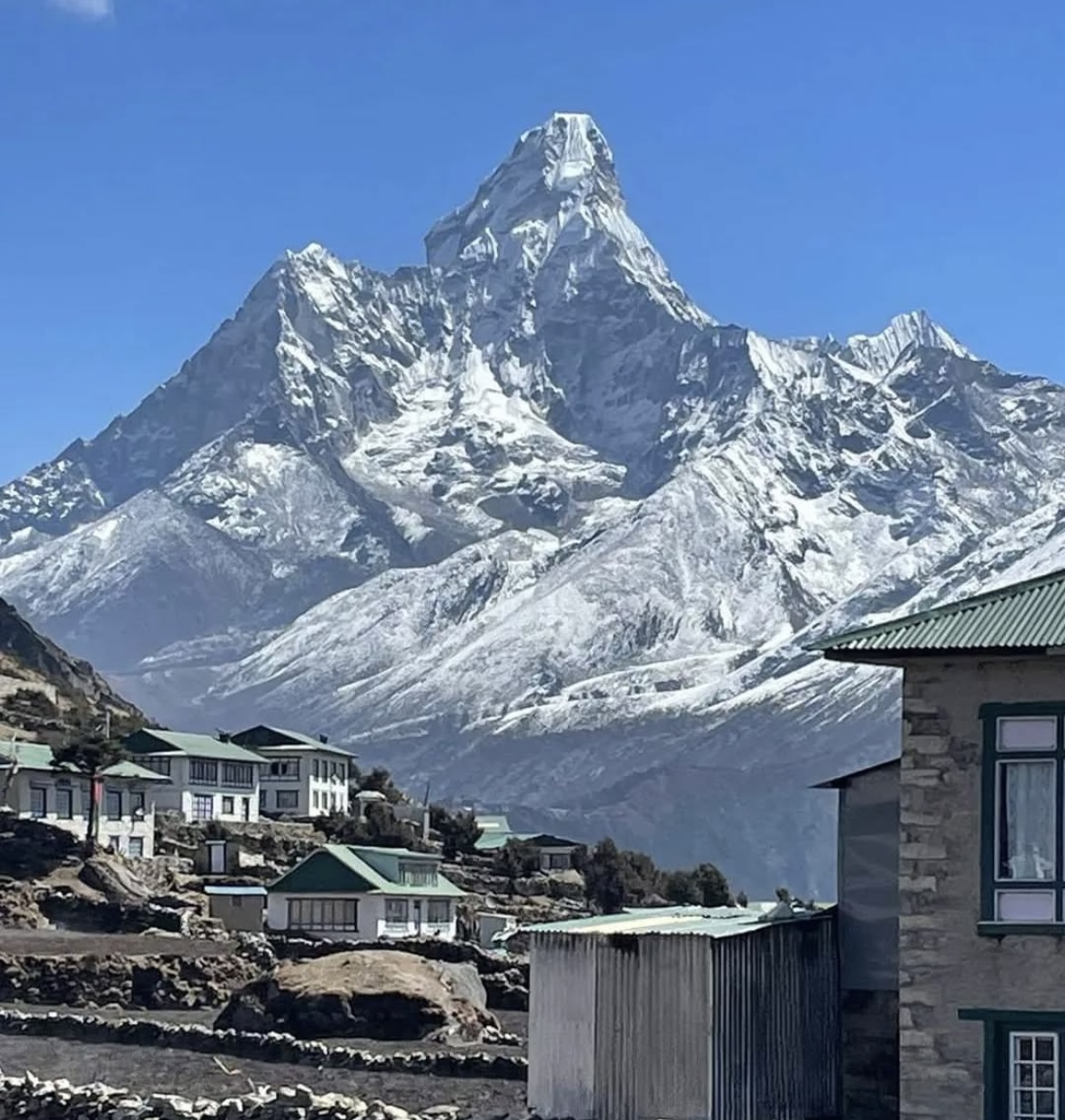U.S. cancels $39 million in aid including support to Nepal’s Khumbu region
KHUMBU– In a surprising move, the United States government has announced the cancellation of $39 million in aid that was earmarked for various federalism and biodiversity conservation projects in Nepal, significantly impacting initiatives in the Khumbu region, famously home to Mount Everest.

The aid package, which included $20 million allocated to enhancing local governance and $19 million dedicated to environmental conservation, has been halted due to a reassessment by the US Department of Government Efficiency. This decision is part of a broader reevaluation of American foreign assistance programs.


The Khumbu region, recognized for its unique ecological and cultural landscape, has been a focal point for biodiversity conservation efforts. The Sagarmatha National Park, established in 1976 and designated a UNESCO World Heritage Site in 1979, is at the heart of these efforts. The park is not only home to the iconic Mount Everest but also hosts a variety of flora and fauna, some of which are endemic to the region.
The halted funds were intended to support several critical initiatives in Khumbu, including:
1. **Forest Management Programs**: Aimed at promoting sustainable forestry practices, these programs help prevent deforestation and preserve local biodiversity. They also support the local economy by ensuring a sustainable supply of resources.
2. **Alternative Energy Projects**: These projects, such as solar energy installations, reduce the dependency on firewood, thereby protecting the region’s forests and contributing to a reduction in carbon emissions.
3. **Tourism Management and Infrastructure Development**: The aid was also set to enhance tourism infrastructure, ensuring that the influx of visitors does not harm the delicate ecosystem. This includes proper waste management and eco-friendly accommodations.
4. **Community Engagement**: Integral to these projects was the involvement of local communities, particularly the Sherpas. By engaging locals in conservation efforts, the projects aimed to promote sustainable living practices and preserve traditional knowledge.
Local communities and government officials have expressed their concerns over the potential implications of the aid cut. Nawang Tenzing, a Sherpa community leader in the Khumbu region, stated, “The withdrawal of this aid is a significant setback for us. These funds were crucial for maintaining our conservation efforts and ensuring sustainable development in the region.”
While the cancellation of aid presents challenges, it also brings to the forefront discussions about Nepal’s dependency on foreign aid. Dr. Anupama Sharma, a conservation expert, commented, “This situation highlights the need for Nepal to explore alternative funding mechanisms and become more self-reliant in its conservation efforts. It is an opportunity for us to innovate and develop homegrown solutions.”
The Nepali government and local communities are actively seeking alternative sources of funding to continue their conservation work. They are exploring partnerships with international NGOs, private sector investments, and leveraging community-based tourism as potential funding avenues.
Despite the financial setback, the commitment to preserving the unique environment of the Khumbu region remains strong. Efforts are underway to adapt and ensure that the progress made in biodiversity conservation and sustainable development is not lost.
As the world continues to watch, the Khumbu region’s response to this challenge could serve as a model for other regions facing similar issues.

